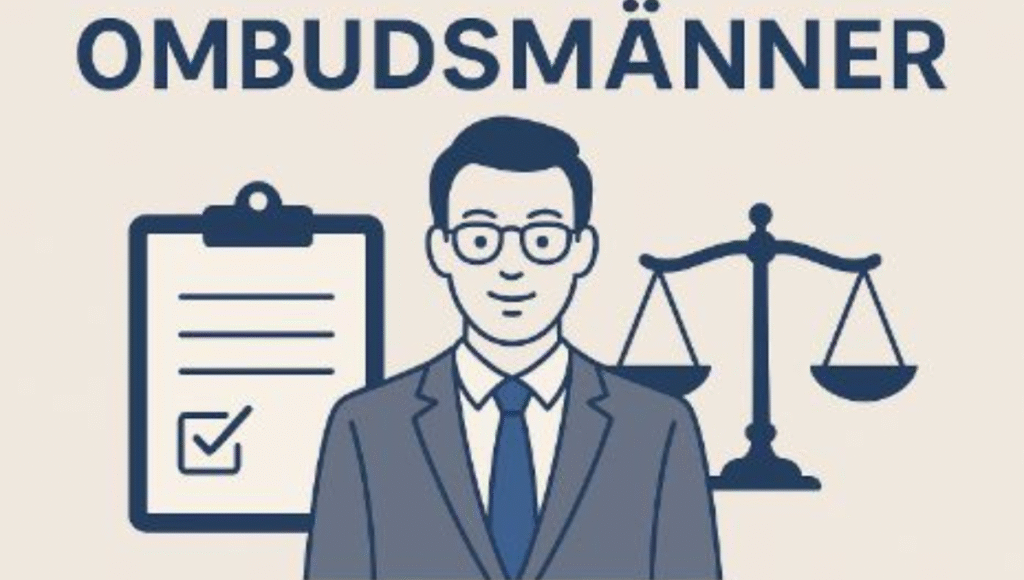In a world where fairness, accountability, and transparency are essential, few roles carry as much weight as that of the Ombudsmänner. Often referred to as mediators or watchdogs of justice, Ombudsmänner serve as independent authorities who safeguard citizens, employees, or consumers against unfair treatment, corruption, and misuse of power. Their role has evolved significantly over time, making them not only vital in governance but also in corporate, educational, and organizational settings.
This article provides a comprehensive look at who Ombudsmänner are, their duties, benefits, and why their role remains highly relevant today.
What Is an Ombudsmann?
The term Ombudsmann (plural: Ombudsmänner) originates from Sweden, where the position was first established in the early 19th century as an independent office to oversee government activities and protect citizens’ rights.
In essence, an Ombudsmann is:
-
A neutral authority dedicated to examining grievances raised against institutions or officials.
-
A protector of rights who ensures individuals are treated fairly and in accordance with laws and policies.
-
A voice of accountability ensuring that power is not abused and transparency is maintained.
Unlike courts, Ombudsmänner offer a less formal, quicker, and more approachable way to resolve conflicts.
Duties of Ombudsmänner
The role of an Ombudsmann can vary depending on context (government, corporate, academic, healthcare, etc.), but their core duties generally include:
1. Investigating Complaints
They receive complaints from individuals or groups about unfair treatment, maladministration, or unethical practices, and conduct thorough investigations.
2. Mediating Disputes
Ombudsmänner act as neutral mediators between conflicting parties, helping to find solutions that are fair and balanced.
3. Protecting Rights
They safeguard the rights of individuals, particularly against powerful institutions or organizations.
4. Recommending Reforms
In addition to resolving individual disputes, Ombudsmänner frequently uncover broader systemic challenges and propose policy or practice reforms to help avoid future issues.
5. Ensuring Accountability
They hold organizations, officials, and leaders accountable for their actions, thereby strengthening trust in systems and institutions.
Benefits of Having Ombudsmänner
The presence of Ombudsmänner provides numerous advantages for both individuals and society:
1. Accessibility
Unlike courts, Ombudsmänner are approachable and less intimidating. Citizens and employees can bring their complaints without high costs or lengthy procedures.
2. Efficiency
They often resolve cases faster than judicial systems, providing timely justice and solutions.
3. Impartiality
Ombudsmänner act independently, ensuring that outcomes are based on fairness rather than political or corporate influence.
4. Trust-Building
By protecting rights and addressing grievances, they enhance public confidence in organizations and governance structures.
5. Systemic Improvement
Their recommendations often lead to structural changes that improve systems in the long run.
Modern Relevance of Ombudsmänner
In today’s fast-changing world, Ombudsmänner are more important than ever. The complexities of governance, business, and technology bring new challenges that require impartial oversight.
1. In Government
Ombudsmänner protect citizens against bureaucracy, corruption, and administrative abuse, ensuring that governments remain transparent and accountable.
2. In Business and Corporations
Many large organizations employ Ombudsmänner to handle employee grievances, customer complaints, and ethical issues. This fosters fairness and strengthens workplace culture.
3. In Education
Universities and schools rely on Ombudsmänner to address student concerns, ensuring academic fairness and protecting against discrimination or misconduct.
4. In Healthcare
Patients often face complex systems and potential mistreatment. Ombudsmänner ensure patient rights are respected and medical ethics are upheld.
5. In Digital Spaces
As online platforms grow, digital Ombudsmänner are emerging to oversee online disputes, privacy concerns, and fair use of technology.
Common Misconceptions About Ombudsmänner
-
“They replace courts.”
Not true—Ombudsmänner complement the legal system by providing a simpler, faster resolution process. -
“They always have binding power.”
In many cases, Ombudsmänner make recommendations rather than binding decisions, though their influence carries significant weight. -
“They only work in government.”
Their role has expanded into corporations, schools, hospitals, and even online communities.
Why Ombudsmänner Are Essential Today
The rise of global institutions, digital technologies, and corporate power means individuals often face overwhelming systems. Ombudsmänner serve as a vital link between people and institutions, safeguarding fairness and preventing authority from eclipsing justice.
They represent fairness, accountability, and human-centered governance—values that are crucial in modern society.
Conclusion
Who Are Ombudsmänner? Duties, Benefits, and Modern Relevance highlights that Ombudsmänner are more than just mediators—they are guardians of fairness and protectors of trust. Their work spans across government, business, education, healthcare, and digital spaces, ensuring that individuals are treated justly in an increasingly complex world.
By investigating complaints, protecting rights, and recommending reforms, Ombudsmänner remain indispensable in fostering transparency, accountability, and social justice. In a time when fairness is often overshadowed by bureaucracy and complexity, their role shines brighter than ever.

